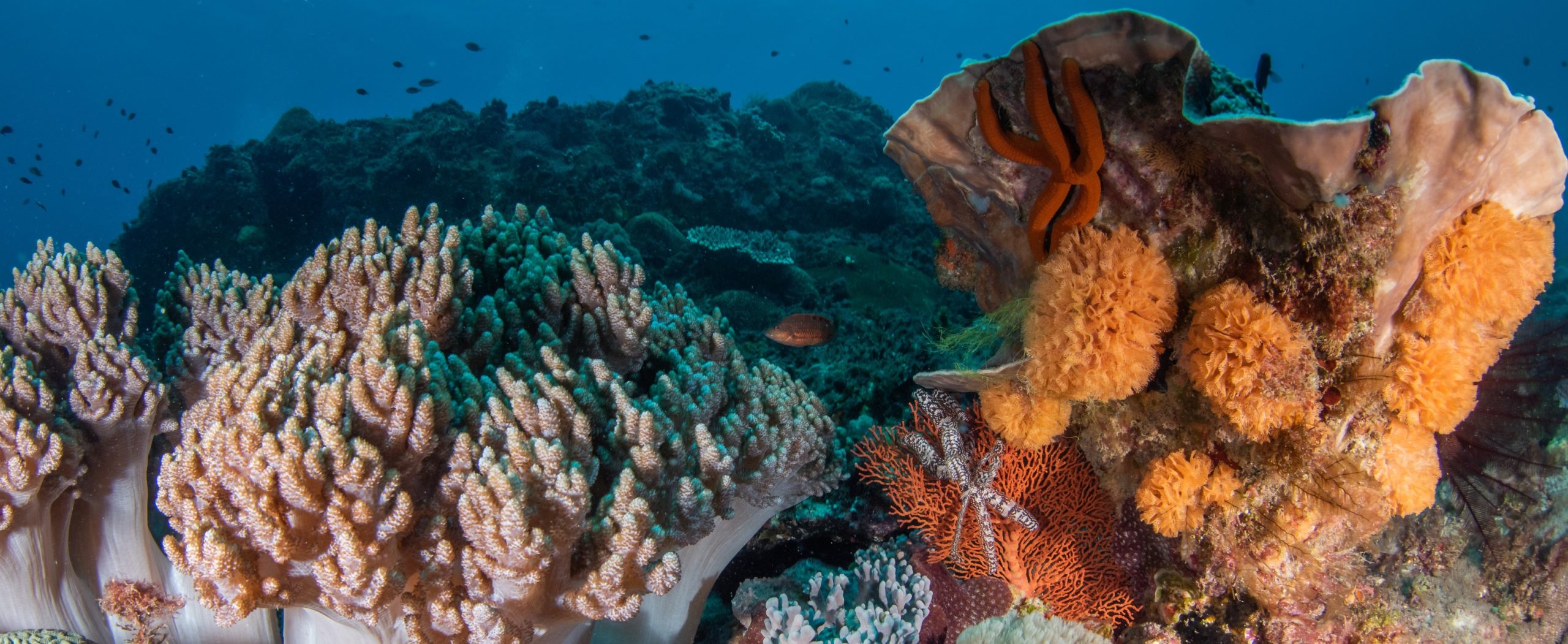Globally, marine fish communities are being altered by climate change and human disturbances. We examined data on global marine fish communities to assess changes in community-weighted mean temperature affinity (i.e., mean temperatures within geographic ranges), maximum length, and trophic levels, which, respectively, represent the physiological, morphological, and trophic characteristics of marine fish communities. Then, we explored the influence of climate change and fishing on these characteristics because of their long-term role in shaping fish communities, especially their interactive effects. We employed spatial linear mixed models to investigate their impacts on community-weighted mean trait values and on abundance of different fish lengths and trophic groups. Globally, we observed an initial increasing trend in the temperature affinity of marine fish communities, whereas the weighted mean length and trophic levels of fish communities showed a declining trend. However, these shift trends were not significant, likely due to the large variation in midlatitude communities. Fishing pressure increased fish communities’ temperature affinity in regions experiencing climate warming. Furthermore, climate warming was associated with an increase in weighted mean length and trophic levels of fish communities. Low climate baseline temperature appeared to mitigate the effect of climate warming on temperature affinity and trophic levels. The effect of climate warming on the relative abundance of different trophic classes and size classes both exhibited a nonlinear pattern. The small and relatively large fish species may benefit from climate warming, whereas the medium and largest size groups may be disadvantaged. Our results highlight the urgency of establishing stepping-stone marine protected areas to facilitate the migration of fishes to habitats in a warming ocean. Moreover, reducing human disturbance is crucial to mitigate rapid tropicalization, particularly in vulnerable temperate regions.
